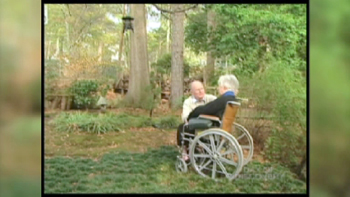
When Dr. J. Robertson McQuilkin died in 2016, he left behind a glittering ministry track record.
During his 88 years he served as a Bible college faculty member and the headmaster of a Christian school. He and his wife Muriel and their four children journeyed to Japan, where over the course of a dozen years he planted five new congregations. He became president of Columbia Bible College and Seminary in 1968. During his 22 years at the helm, enrollment doubled. Along the way he helped establish two local radio stations and authored 19 books.
Those were the high points of McQuilkin’s obituary.
But that’s not how he is remembered.
In 1990 he made what he described as the “simplest and clearest” decision of his life. He resigned the Columbia presidency in order to provide fulltime care for Muriel, who for several years had been afflicted by Alzheimer’s. For many, the decision came as a shock. At the height of his influence, he was walking away from an active, productive ministry.
McQuilkin didn’t see it that way. In his resignation speech he described caring for Muriel not as a have-to, but as a get-to.
He devoted himself to his wife until her death in 2003. In his book A Promise Kept, McQuilkin details their long and emotional journey. Here’s one anecdote:
Once our flight was delayed in Atlanta, and we had to wait a couple of hours. Now that’s a challenge. Every few minutes, the same questions, the same answers about what we’re doing here, when are we going home? And every few minutes we’d take a fast-paced walk down the terminal in earnest search of – what? Muriel had always been a speed walker. I had to jog to keep up with her!
An attractive woman sat across from us, working diligently on her computer. Once, when we returned from an excursion, she said something, without looking up from her papers. McQuilkin wasn’t sure if she had been speaking to him. “Pardon?” I asked.
“Oh,” she said, “I was just asking myself, ‘Will I ever find a man to love me like that?’”
It’s one thing to leave behind an impressive obituary.
It’s quite another to leave behind a relational legacy – a living example of promise-keeping (“in plenty and in want, in joy and in sorrow, in sickness and in health, as long as we both shall live”) – especially in a culture that no longer expects promise-makers to be promise-keepers.
No matter what we’re facing today, and no matter what doors of opportunity seem to have opened, we can be certain of one essential task to which God has called us.
Our call, by God’s grace, is to be there for each other.
